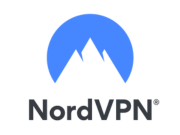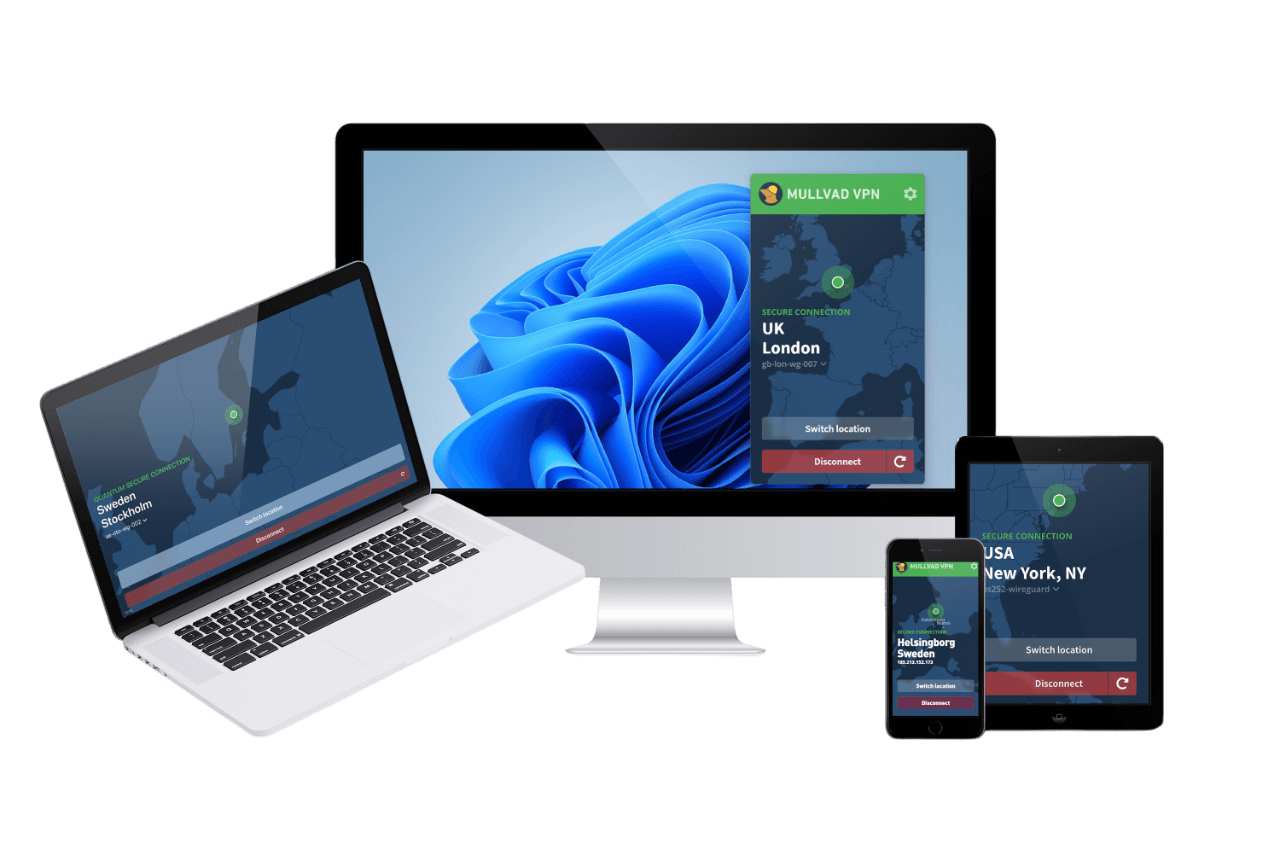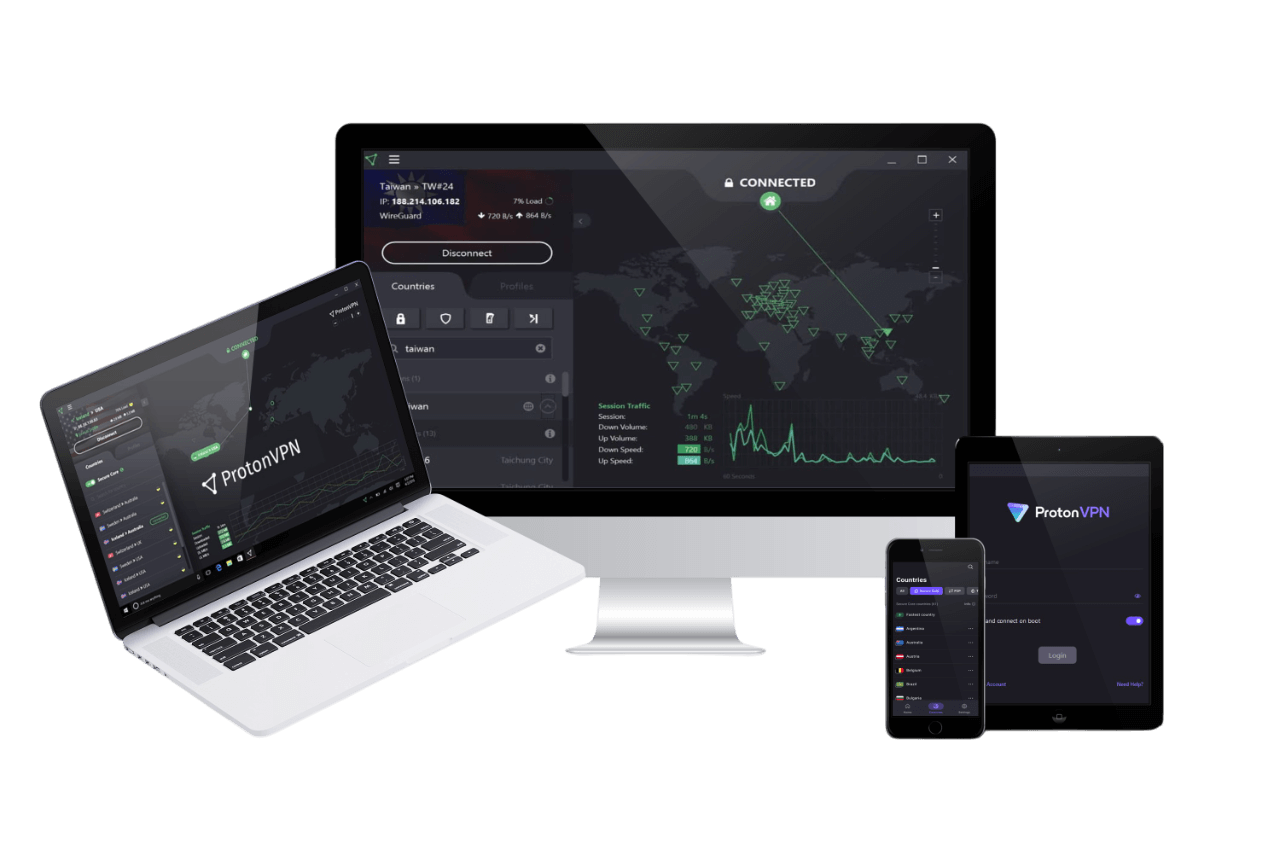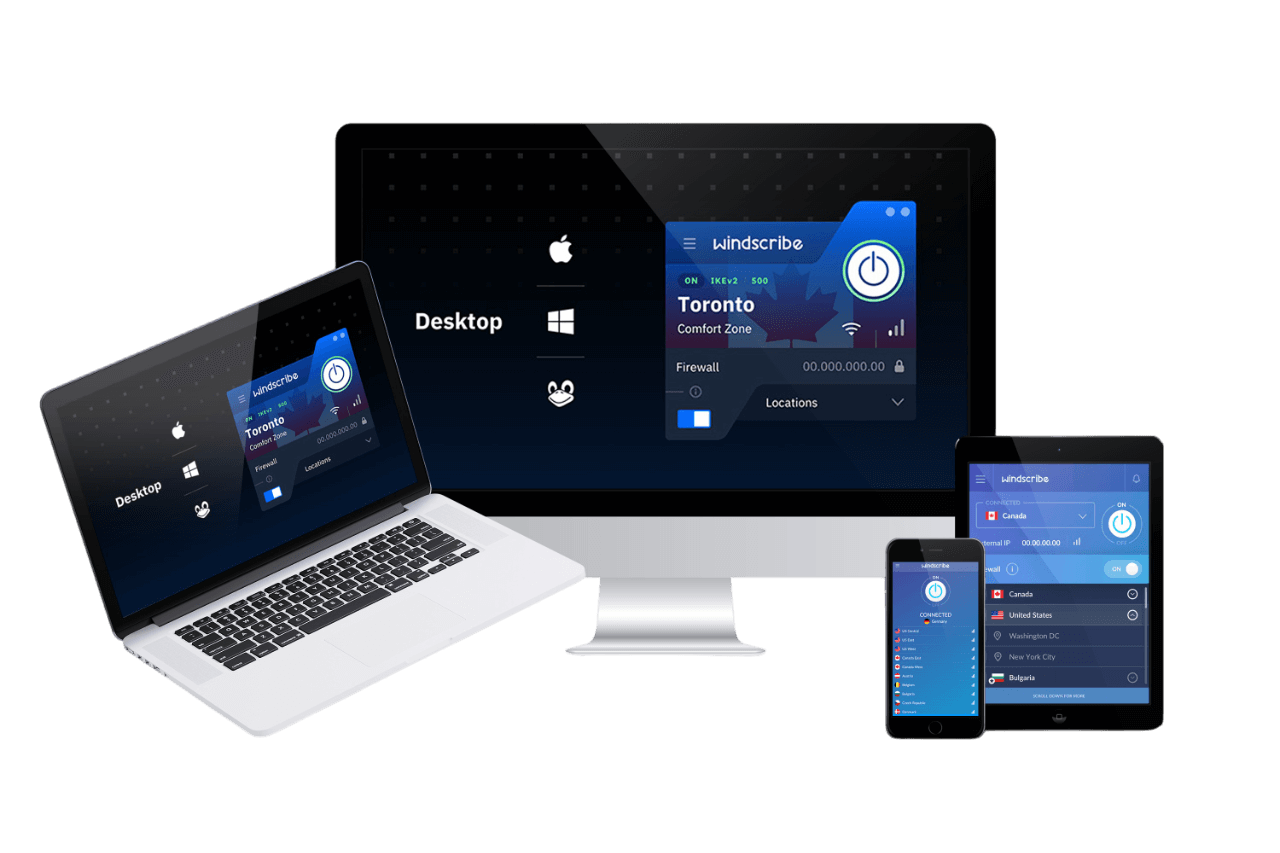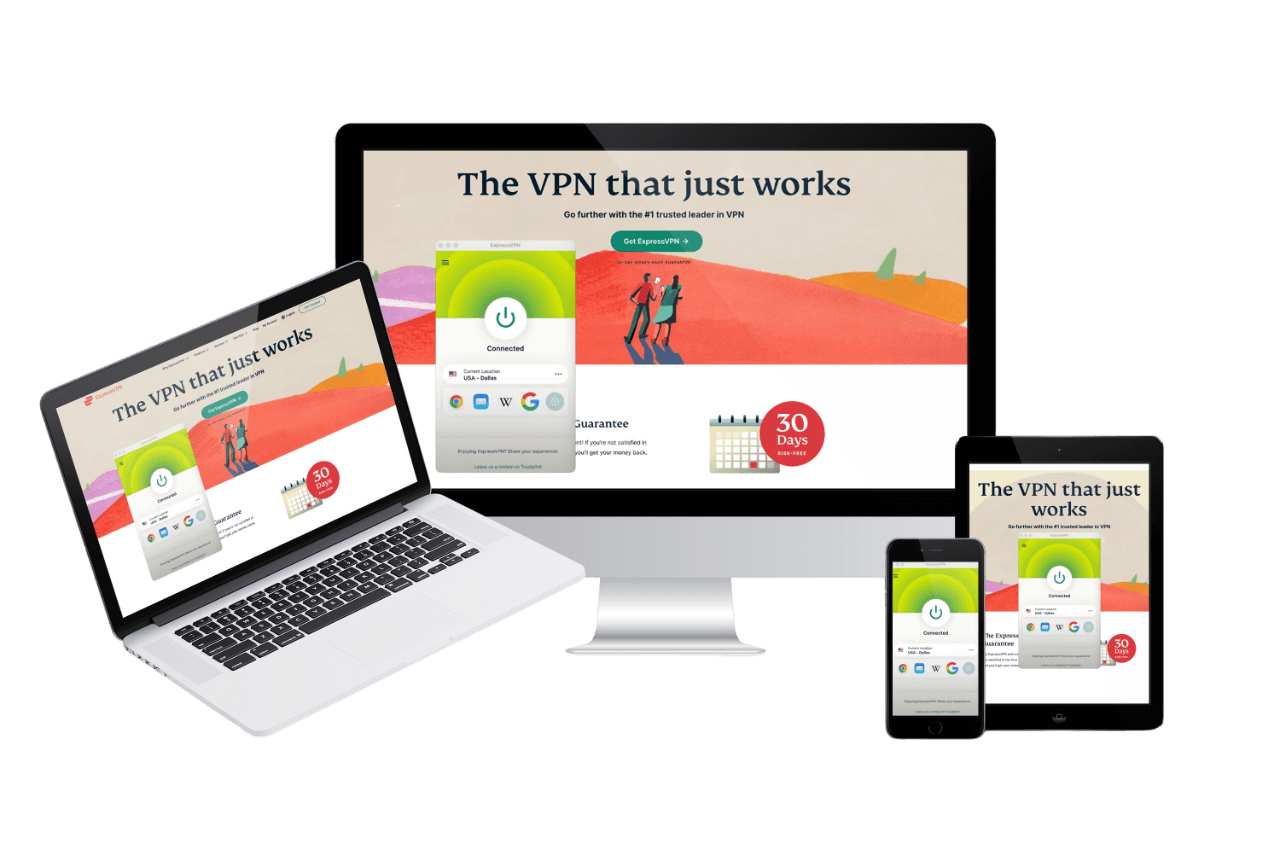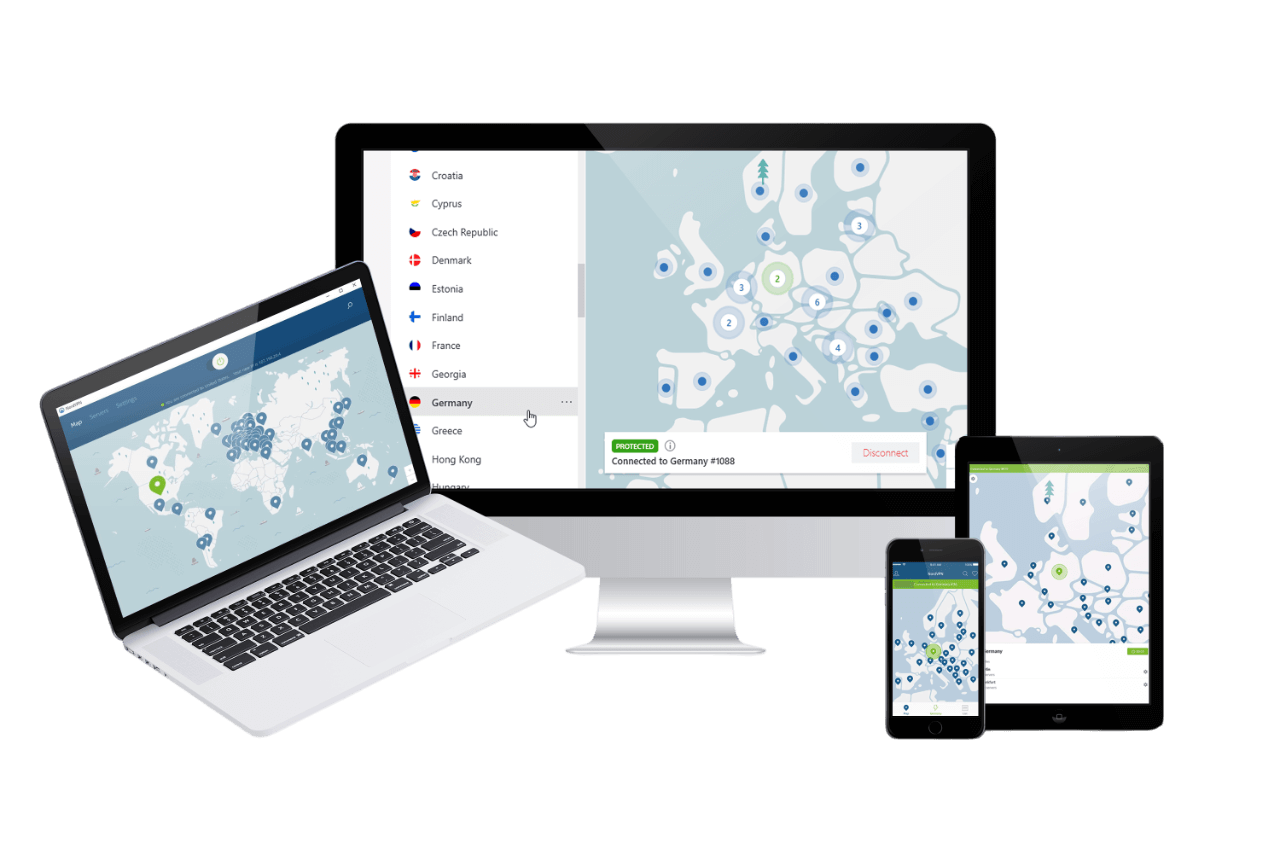5 Best VPNs for Torrenting in 2025: Anonymity & Speed Tips
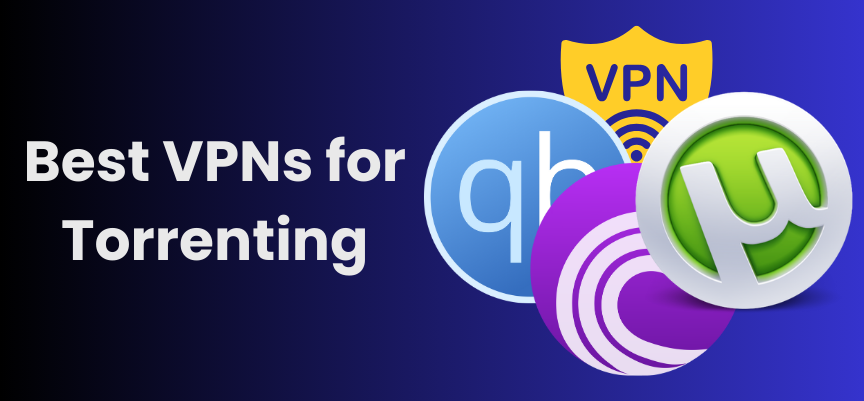
Ah, the torrent tracker. A place where communism works. A place where you could (nay, should) find that movie after you tried to pay for it and got blocked with a message like “we’re sorry, we can only accept bank cards issued in the UK”. A place where Jews and Arabs, Russians and Ukrainians still gather to share and enjoy something in peace. That may sound like hyperbole but I genuinely saw this on my list of peers the other day:

Make torrents not war!
But how do you reach for this sweet, tempting fruit if you’re in a country where copyright holders can instantly dispatch helicopter gunships to your address? Wie gehts my old German friends, I’m talking to you. You and anyone else who wants to keep their file sharing adventures as anonymous as possible. The answer, of course, is a good VPN used correctly.
TLDR; Mullvad is best in class for torrenting
Just looking for the best VPN for file sharing? Look no further. I honestly didn’t expect it to be so simple, but here it is: Mullvad gives you true anonymity while making no compromises on speed. I just don’t see other services right now that deliver both so well.
A Word on Free VPNs
Let’s face it, torrenters like free stuff and many ask: why can’t my VPN be free too? Simple. You don’t expect your unlimited home Internet connection to be free, do you? A VPN is just another Internet Service Provider (ISP). They own or rent very real infrastructure around the world, they need to buy all that traffic from other providers (not cheap) and on top of this they need to pay hopefully smart people to build the VPN software you rely on.
The reality is ads just can’t pay for all this in 2025. But activities like selling your data might. And remember: when you join a Virtual Private Network, it’s just like connecting to WiFi somewhere. Whoever manages that network can easily make your device (with all its vulnerabilities) completely accessible to others and generally do evil stuff.
There are two kinds of free VPNs that can be trusted:
- Respectable non-profits like Tor (which is technically not a VPN) set up to fight censorship, protect whistleblowers, etc.
- Limited free plans from established VPN services that encourage you to upgrade to a paid option.
Although we’ll discuss one possible exception, both of these are generally unsuitable for torrenting. Torrent traffic is either blocked, extremely slow or capped. It’s also unethical to use the non-profit services for your entertainment when people in places like Iran are relying on that limited bandwidth to read the news. You may be a torrenter but you’re still a good person right? Pay for your VPN.
Best Practices
Let’s look at some tips for faster, safer file sharing over any VPN. For simplicity, I’ll only include instructions for the popular, free qBittorrent client available for Windows, Mac and Linux. It’s now used almost as widely as the original uTorrent while remaining an open source, ad-free alternative that’s probably better for privacy and security overall. In my view it’s also easier to configure, but most of these settings can also be found in uTorrent and other clients like Transmission.
Server Selection
Selecting a distant VPN server can greatly reduce speeds. This rarely has anything to do with the VPN itself. It’s all about how international traffic is allocated by your Internet provider and upstream exchanges. Limits on this kind of cross-border bandwidth are a major reason companies like Google try to bring content closer to you and invest billions in new undersea cables.
For torrenting you probably have no interest in pretending to be in a specific location. Most VPN apps automatically suggest the best server for you, and it’s a good idea to just use that. If you do select manually, picking one that’s as close to you as possible is usually a good bet. Beware of crossing major geographic or political boundaries though (like an EU border), that can really slow down connections. If you’re in San Diego, a server in New York may well give you much higher bandwidth than a closer one across the border in Mexico.
For those of you who are really into torrents and ready to geek out and optimize, consider where your peers are located too. If you’re in Europe and sharing European content you can bet almost all your peers will be in Europe too. By using a Canadian server you’re making that data cross the Atlantic twice: from the guy next door all the way to Canada, and then back to you. This kind of suboptimal routing is almost guaranteed to give you speeds much lower than what your ISP and VPN are actually capable of.
Optimization aside, there is much discussion about some countries being more torrent-friendly than others, which means lax enforcement of copyright laws online. Traditionally Mexico, Scandinavia and France have “good” reputations, but this is always a changing landscape. I’d certainly stay away from your own country and Germany, but chances are if your VPN allows torrent traffic through a server in the first place, they’ve made arrangements to avoid enforcing anything or revealing your identity. Anyone who’s especially concerned about this should still do a little research or use one of the more anonymous VPNs I’ll recommend below to stay safe at all times.
Preventing Leaks
Here’s a common scenario: you have a torrent client that keeps running in the background sharing torrents by default, and a VPN that does not run by default which you forgot to start. You can think about that one inside your favourite ventilation duct as you hide from the copyright enforcement squad:

It’s really important to avoid any setup where you’re screwed if you forgot to start a VPN first. We don’t need to remember to enable all the airbags when we get in a car right? Fortunately there are some solid ways to prevent accidental VPN leaks, and we’ll explore them now.
Kill Switch
Every major VPN now offers “Kill Switch” features (at least on a desktop OS or Android). Make sure they’re enabled before you start torrenting! They’re designed to block all Internet access outside the VPN while it’s disconnected for any reason, and that does happen. Here are those options in the Mullvad settings:
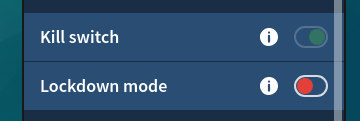
WARNING: usually these kill switches only work while the VPN client is running, which means if it crashes, wasn’t started or got uninstalled your traffic will definitely leak! Where available, an option like “Lockdown mode” goes further by trying to keep your device completely offline by default even without a VPN client in the picture. But even this isn’t foolproof, and deliberately breaks networking in a way that can be hard to undo later, especially if you forgot about it or removed the app. If you’re still fine with relying on just the basic kill switch, also consider enabling settings like these to prevent accidents:
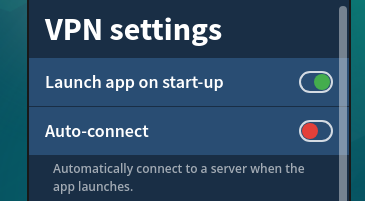
My advice to anyone torrenting through a VPN would be to make sure your torrent client, on the other hand, does not launch on start-up. Just in case.
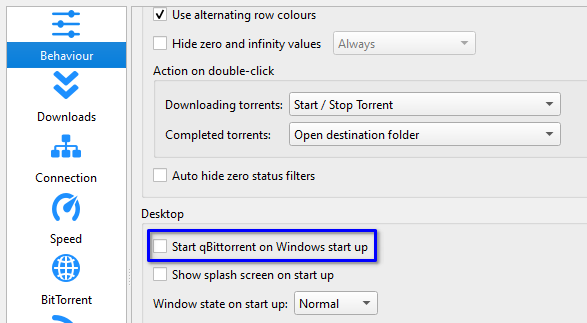
Power users should take a minute to understand what all these different options actually do and also consider the more advanced and reliable methods of blocking leaks described below.
Network Interfaces (Advanced)
Any VPN client creates a virtual network interface on your system. Think of it as an extra WiFi antenna or Ethernet cable connected to your computer. A great way to really keep your torrent traffic confined to the VPN is using its network interface. Here’s how:
- Connect to your VPN.
- In qBittorrent, manually select the VPN in Preferences > Advanced > Network interface:

It’s usually super obvious which one is the VPN interface, but if you’re having doubts this method isn’t for you! Once you have an interface selected qBittorrent will be completely offline without it, even if it no longer exists on your system. If you switch to another VPN or decide not to use one at all, you’ll probably need to change this setting.
An added bonus for power users: if you’ve configured your network settings manually to not use the VPN as a default gateway for all traffic, this gives you split tunneling! Torrents will use the VPN interface while everything else (like browsers and games) will use your normal Internet connection. This is very useful if you want to keep torrents running safely in the background without the VPN interfering with other activities like streaming or online banking.
Proxy (Advanced)
Some providers like Mullvad have proxies available on all their VPN servers once you’re connected. For programs that support proxies (like qBittorrent and Firefox) it’s another reliable way to direct traffic only through the VPN or block it if the VPN is disconnected or uninstalled. In qBittorrent, add the proxy under Connection > Proxy Server:
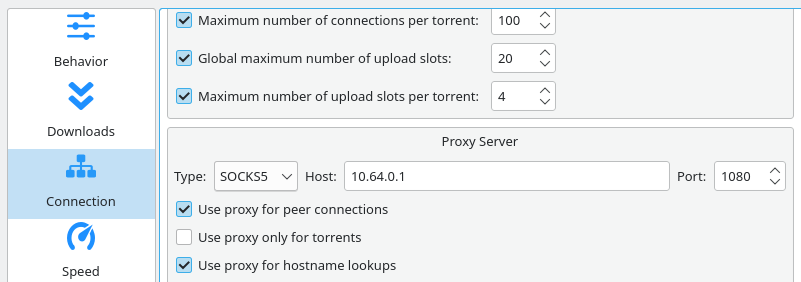
Make sure you check the peer and hostname options! Like selecting a network interface, this method can also allow you to get split tunneling and route specific applications through the VPN without affecting others.
Router Setup (Advanced)
Probably the most rock solid, foolproof way of preventing VPN leaks known to man is setting up a VPN on your router. More and more consumer-grade routers now allow this and major VPN services like the ones listed here provide config files and instructions. A full guide might be a subject for another article.
Normally, directing absolutely any traffic from your device through the VPN on a router level is a safe as it gets. There is nothing you can do on the device itself that will break out of the VPN, is there?
Nothing, except for using a random MAC address! Many modern operating systems default to this behaviour now, and it’s like using a fake identity when you connect to a network (often every time). This enhances privacy on public WiFi but can cause problems at home or work. Whether your MAC changed on its own, because you toggled this setting or after a fresh install, your router won’t recognize it anymore and won’t know to direct its traffic through the VPN! You’re exposed!
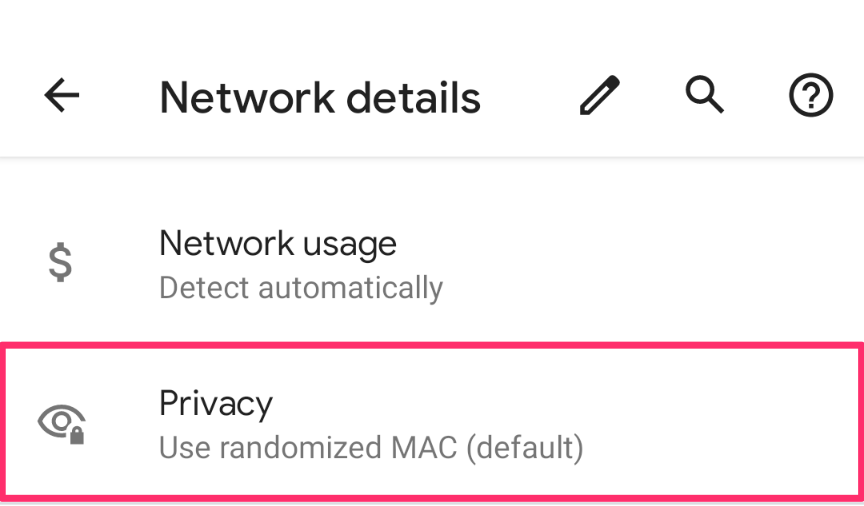
Beware of randomized MAC. I always suggest turning this option off on trusted networks.
Torrent Privacy and Speed
The two major criteria to consider here are anonymity and speed, and I attach a lot more importance to the first. True, there are times when you suddenly realize you don’t have that film everyone decided to watch and you need the world’s fastest torrent to save movie night right now. Been there. But usually downloads happen in the background and a few extra minutes don’t matter at all. This isn’t streaming where slow speeds ruin the entire experience.
Anonymity
My primary focus here is payment methods. Paying for a VPN anonymously is a lot better than relying on whatever policies and implementations they may or may not have to keep your identity undisclosed. Some providers only accept the usual online payments, and that’s fine. What’s far worse is making claims like this:
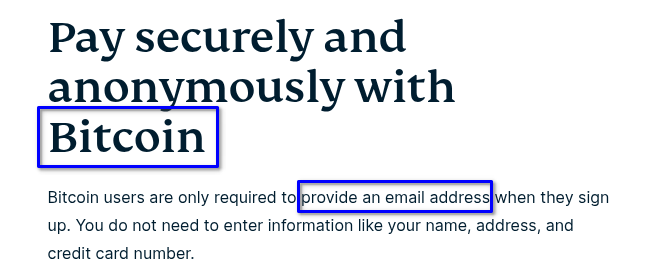
From the ExpressVPN payment options. Facepalm.
I’ve seen this sort of thing many times, and it’s time to go into full mythbusting mode. To be fair, it’s highly unlikely that your torrent activity will attract enough attention for anybody to make a serious effort to identify you via payments or email. That said, “anonymous” is a very strong word that raises expectations. It’s a word that should never be used lightly. So let’s be clear:
- Bitcoin, Ethereum, USDT and other major cryptocurrencies are just Not. Effing. Anonymous. They work on blockchains which are, by definition, public ledgers. Of course, this permanent record does not include your name. But if you buy Bitcoin using your credit card on a reputable exchange and then spend some of it to top up a specific VPN account, that’s a series of transactions that can be traced back to you. This isn’t just a nerdy technical possibility, it is in fact how law enforcement works. Hopefully with a warrant.
- When you ask users to provide and confirm an email address, 99% will use one that can be used to identify them one way or another. It may be associated with a phone number as many Google accounts are. It may simply contain countless mentions of your full name, home address, social security number and all kinds of data that allows it to be linked to you with complete certainty. Again, we like to think this can only be done lawfully and with due process when you’ve screwed up big time.
There are workarounds. I’m not an expert, but I’m sure there are sketchy, less traceable ways of buying and spending popular cryptocurrencies. And you can use an anonymous email service like the excellent Posteo, but that’s something else to sign up and pay for. All this isn’t trivial for somebody who just wants to download some torrents with real anonymity. Good thing at least a couple VPN providers understand that.
Speed
All speed tests are done on my VPN test bench with a gigabit connection during evening rush hour in Europe. Using qBittorrent with default settings, I’m downloading 12GB in three very popular and perfectly legal torrents with hundreds of peers. The files are saved to a RAM disk to eliminate any effect my hard drive can have on results. When fast parallel downloads are running and there’s a lot of concurrent disk activity going on and we don’t want that in the picture. Here’s how things look without a VPN:
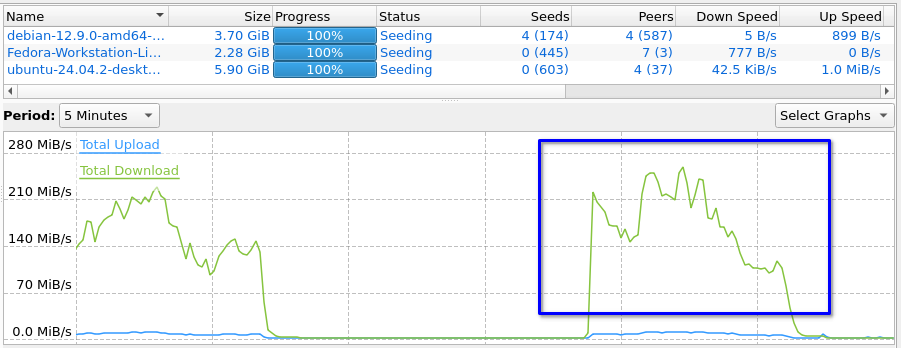
1 minute, 30 seconds to download all 3, mostly at 150-250 MiB/s in total. This is more or less what I expect, with speed quickly increasing before tapering off as the torrents complete one by one.
When repeating this test through the VPNs, I made sure to use the fastest protocol available for manual configs (usually WireGuard).
VPN Rankings for Torrenting
1. Mullvad VPN - Fastest and Most Anonymous for Torrenting
Mullvad lets you pay by mailing them cash. Enough said. For maximum anonymity, make sure you wear a hazmat suit while handling the envelope! Another great option is Monero, a less popular cryptocurrency that’s virtually impossible to trace even when purchased with your credit card on a major exchange.
Yet another way Mullvad wins at anonymity is by not requiring an email anywhere at all. To connect and manage your account you always use a single ID code generated on the site when you signed up, and nothing else. The competition always demands a confirmed email address sooner or later. To top it all off Mullvad puts zero trackers in their Android app. For me this is a great litmus test for how serious a company is about privacy in general.
There used to be a catch. When I last used Mullvad a few years ago, it was much slower than the competition. Let’s see how it stacks up now.
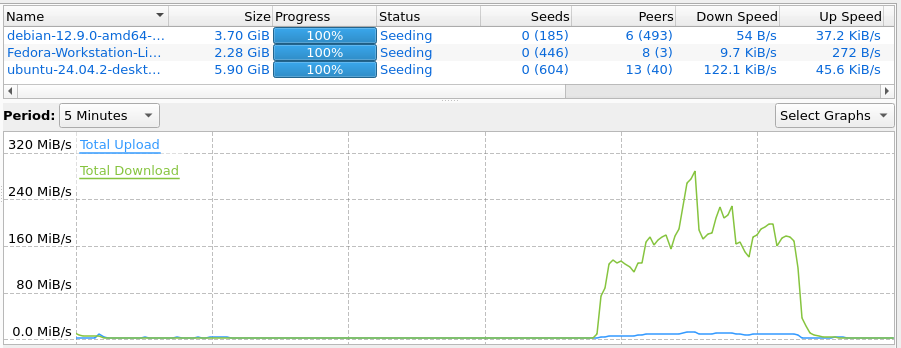
Same 1:30 to complete, no rate limiting, no noticeable VPN performance penalty at all! Seeding completed torrents worked later without problems too. Very impressive for a service I regarded as the speed underdogs. Mullvad’s got the whole package! And at €5/month it’s even cheaper than most plans from the competition.
2. Proton VPN - Decent Anonymity but Limited Speeds
Proton also accepts cash, but no Monero and an email address is still needed. Only one tracker on Android, and an acceptable one. A solid second place for anonymity! What about speed?
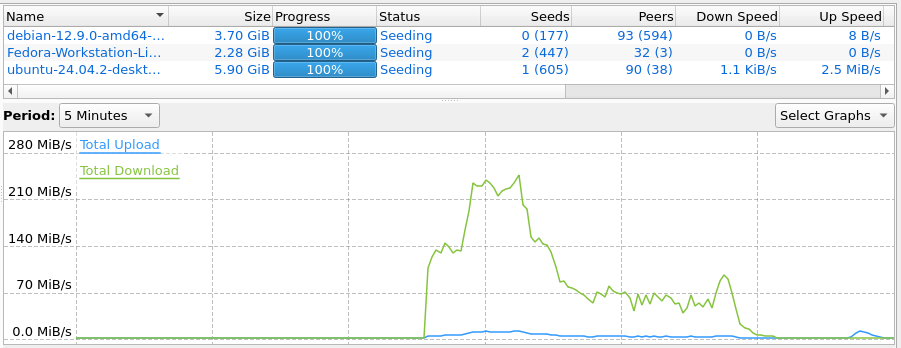
Noticeably slower at 2:12, and looks like we more or less hit a rate limit of 70 MiB/s.
3. Windscribe - Best Free Plan for Torrenting
Windscribe gets some points for probably being the only respectable VPN with a free option that includes a non-tiny amount of torrent traffic. You’ll get 10GB of data per month, and if you’re only looking to download something occasionally that may well be enough. 10GB is a feature film in 1080p with a decent bitrate, probably higher quality than what you get from your favourite streaming service. Not bad for just Free.99!
If you upgrade they do accept Monero payments, but require an email address. No cash in a dark alleyway. Zero trackers.
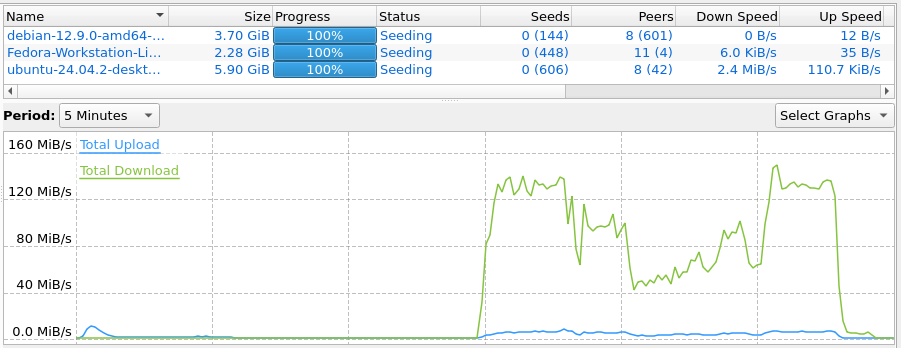
2:26, and struggling to get over 100MiB/s at times (although doesn’t seem to be a clear case of rate limiting). Slow compared to the others, but a well-earned third place overall.
4. (tie) ExpressVPN - No True Anonymity but Great P2P Speeds
Another big one for comparison. No anonymous payment options at all, although they would have you believe otherwise. They get last place for what I consider to be a misleading claim about users being “anonymous” while paying with Bitcoin and using their email address. The tracker and permissions situation is about the same as with NordVPN (not great). Do they make up for any of this with speed?
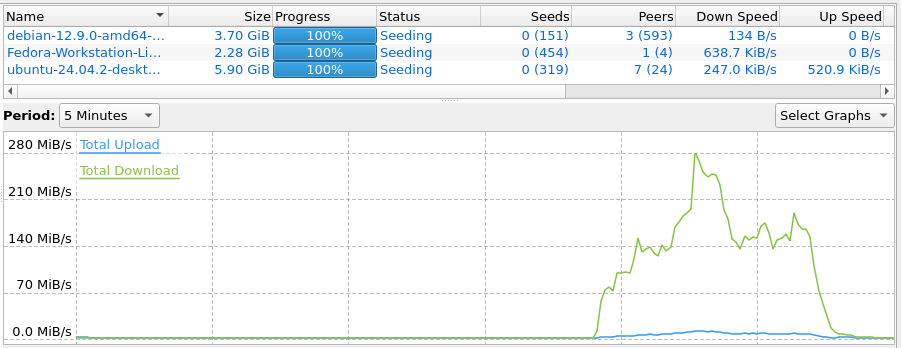
Actually, yes! 1:43 and no sign of rate limiting, I’d say close enough to non-VPN performance to be within the margin of error. Express lives up to its name, ladies and gentlemen!
I was going to place them dead last but NordVPN’s lame rate limiting compared to these excellent speeds means these two giants of the VPN market can actually share last place this time.
4. (tie) NordVPN - Limits on both Speed and Anonymity
Likely the biggest and most mainstream VPN people often ask about, so worth a look.
If you want to pay in cash, you can do that at retail locations like BestBuy and Walmart in several countries including the US. Make sure you wear a balaclava when you walk into that store! As far as I can see that’s the only way to pay anonymously. And yes, email required. Three trackers including Google, and lots of permissions required on Android which can be problematic. No surprises there.
NordVPN tends to steal the show with their amazing speeds, so what’s happening there?
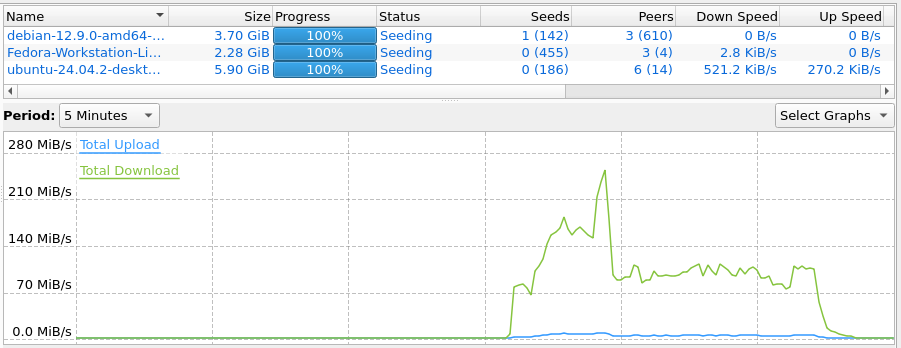
2:08, and looks like I got rate limited to 100MiB/s pretty quickly. Not cool, and certainly not what I expected!
Conclusion
When I set out, I fully expected to recommend Mullvad for anonymity and maybe NordVPN for speed, with possibly a third service providing a decent mix of both. But it turns out there’s no tradeoff. At least in my test Mullvad gets perfect marks on both fronts. While I see absolutely no reason to choose another VPN for torrenting, Windscribe also gets honourable mention for providing the most generous free tier. Meanwhile, the two popular behemoths in the room are a disappointment.
FAQ
Absolutely. While not all VPNs allow peer-to-peer torrent traffic, most explicitly do. This is one of the top reasons folks pay for a VPN and providers know it.
Only as anonymous as the payment method you used and your email address (if one is required).
Generally, there’s no such thing as a good free VPN! Especially not for torrents! As far as I know, only Windscribe comes close to providing a decent free option with a 10GB monthly limit.
The simplest way is to use the kill switch functionality available in most VPN apps and usually enabled by default. But relying on it is risky! I encourage everyone to configure network interfaces as I explained in this guide.

